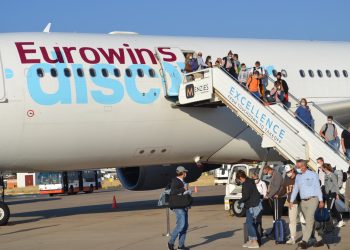
Namibia has approved 10,016 visa applications, with the Home Affairs Ministry continuing to receive more since the launch of the E-Visa-on-Arrival Portal and the Visa-on-Arrival application at the start of this month.
As part of Namibia’s new visa regime, effective 1 April, e-visa and visa-on-arrival applications were introduced to streamline the process for nationals entering Namibia from countries that have not granted Namibia reciprocal visa exemptions.
In a move to harmonize the country’s immigration policies, Cabinet has also approved the reciprocity of holiday visas, short-term employment permits, and visa-on-arrival fees.
Under the new terms, nationals from African Union countries will pay N$1,200, while citizens of non-African Union countries will pay N$1,600.
“This fee applies to holiday visas, short-term employment permits, and visa-on-arrival requests for adult travelers. Additionally, a fee will apply to minor children between the ages of 6 and 11,†the ministry said.
Cabinet has further approved a fee exemption for all minor children under the age of six to assist families and facilitate easier travel.
“These children will not be charged any fees for holiday visas or visa-on-arrival requests, reflecting Namibia’s commitment to promoting family-friendly travel experiences,†the ministry announced.
Namibia has also introduced group bulk payments for online e-visa transactions, allowing service providers to pay up to N$97,000 in a single transaction.
Meanwhile, the government has exempted diplomatic passport holders from Germany and France from its new visa regime.
Cabinet approved the exemption, granting the Ministry of Home Affairs, Immigration, Safety, and Security permission to waive visa requirements for diplomats from the two European nations.
“Additionally, holders of diplomatic and official passports from the Republic of Switzerland will also be exempted from visa requirements. This decision is a reciprocal gesture aimed at fostering closer ties with these nations,†the ministry said.
The ministry expects these changes to boost tourism, strengthen diplomatic relations, and facilitate smoother travel to and from Namibia, benefiting both visitors and the Namibian economy.











